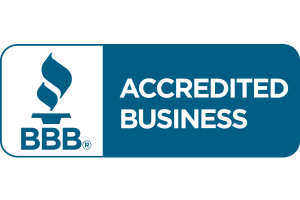The “Robo-Signing” Scandal: How It May Affect You in South Florida
The robo-signing scandal led to thousands of false affidavits being signed. This could affect your lender’s ability to foreclose on your South Florida home.
You may be facing the loss of your home and wondering if there is any recourse you can take. There may be if your home is affected by the robo-signing scandal. You should consult with a Palm Beach County foreclosure attorney to find out if it could stop your mortgage foreclosure.
An Understanding of the Robo-Signing Scandal
Robo-signing is the process of a bank signing off on papers without verifying important information. The employee of the bank or servicing company blindly signs thousands of documents without reviewing any of the details. In the area of mortgage foreclosures, it may forestall a foreclosure from occurring since these thousands of robo-signed documents are illegitimate.
The foreclosure process can be very complicated and may depend on where you live. In most states, the lender will have to prove that they own the mortgage because the owner has defaulted on the loan. Sometimes this requires the lender going to court.
In any event, the lender will need to provide evidence of a mortgage loan default. One piece of evidence that is used is an affidavit, which is a written sworn statement / documentation that is generally signed by a bank employee under oath.
However, the assumption is that the bank employee didn’t just sign it without first reviewing all of the documents. They must believe that the owner truly has defaulted and the lender now owns the mortgage. If this is not proven, the bank or servicer should not sign the papers. Otherwise it might result in a false foreclosure.
This is where robo-signing comes in. It is the act of a bank signing one of these affidavits without verifying the authenticity of the foreclosure. Some of the bigger names that recently came to light as participating in robo-signing include:
• Wells Fargo;
• Bank of America;
• GMAC; and
• JP Morgan Chase.
In fact, thousands of these affidavits have been signed by servicer or bank employees without any real knowledge as to the truth of the situation. This means that some foreclosures should not happen.
How Robo-Signing May Affect You
You may have been the victim of a falsified affidavit. In that case, your foreclosure may not have been warranted. In fact, it is illegal for a bank to foreclose on a house if the paperwork is not in order.
Sadly, thousands of homes have been part of this robo-signing scandal. It has led to more scrutiny on the foreclosure process, causing delays. Some foreclosures are not being signed off on.
Homeowners have also taken a stand, many seeking legal action to prevent their foreclosure from going through. This has also resulted in the lender taking other measures to move it forward. Some lenders will decide to file a lawsuit against the owner if they fall behind on their mortgage payments. Yet this route is often not beneficial to the lender and costs them money.
Some foreclosure cases were dismissed because of the scandal. However, owners can’t deny the reality that later on the lender may try it again. This can result in you looking for some type of mortgage foreclosure help.
The idea of losing your home is difficult to imagine. However, if you believe that you were the victim of the robo-signing scandal, there may be a way out. The team of foreclosure attorneys at The Neustein Law Group, P.A. serves residents of the Miami-Dade County, Broward County, Palm Beach County and other counties throughout the state of Florida.
By contacting a Palm Beach County foreclosure attorney, you can learn what your legal rights are and if there are options available to help save your home. To learn how an attorney may be able to help when you are at risk of losing your property, contact us today: 561-235-0700 (Boca Raton Office), 561-232-3788 (West Palm Beach Office), 305-531-2545 (Miami Beach Headquarters) or 888-400-ATTY (2889) (Toll Free).






